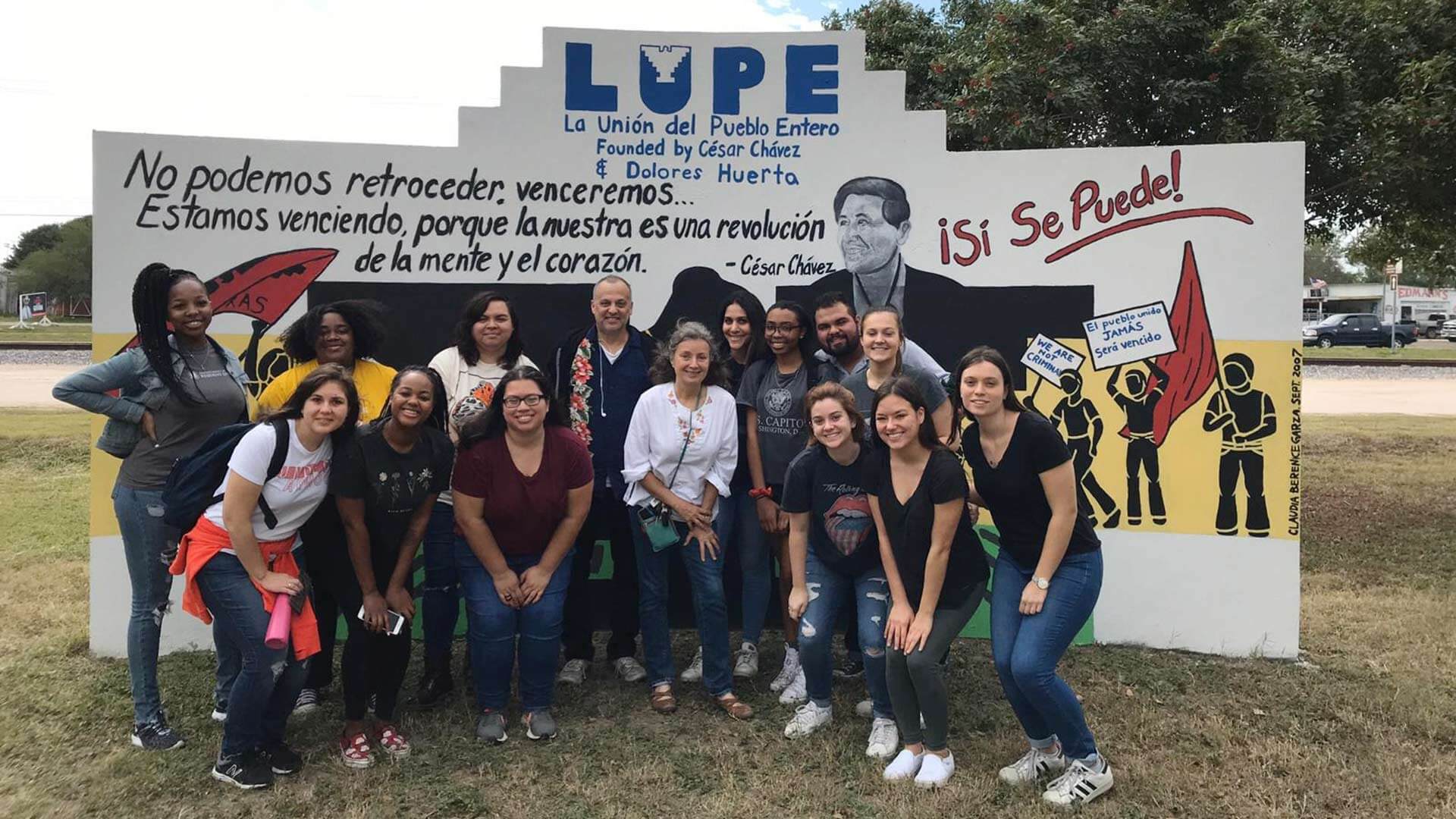- January 31, 2020
- By Liam Farrell
Growing up in Rockville as the son of Honduran immigrants and studying public policy at UMD, senior Jonathan Garcia always had some understanding of the challenges surrounding the United States’ border with Mexico.
But seeing it in person—from the metal barriers separating portions of the countries to a judge sentencing two dozen people at a time—affected him in ways he didn’t expect.
“It’s very heartbreaking for me,” he said.
Garcia was one of a dozen students who took a new Winter term class this month called “Law and Disorder at the Border” through the MLaw Programs, a partnership between UMD and the University of Maryland Francis King Carey School of Law. For about a week, undergraduates toured the Rio Grande Valley, met with local advocates and viewed court proceedings.
Robert Koulish, director of the MLaw Programs, part of the MPowering the State collaboration between UMD and the University of Maryland, Baltimore, said he took students to the border near McAllen, Texas, because it’s the closest entry for refugees coming from Guatemala, Honduras and El Salvador, and was a central point for the U.S. government’s family separation policy.
“This is what experiential education is all about. The law as it played out at the border is completely different than what we read about in books,” Koulish said. “I wanted to see change (in the students), I wanted to see them questioning and I wanted to see some of them want to do something about what they saw.”
 During the trip, students met with activists such as Sister Norma Pimentel, executive director of Catholic Charities of the Rio Grande Valley; Jennifer Harbury, a founder of the Angry Tias and Abuelas human rights organization; and Mariana Trevino Wright, executive director of the National Butterfly Center who is challenging plans for a border wall that would split the environmental refuge.
During the trip, students met with activists such as Sister Norma Pimentel, executive director of Catholic Charities of the Rio Grande Valley; Jennifer Harbury, a founder of the Angry Tias and Abuelas human rights organization; and Mariana Trevino Wright, executive director of the National Butterfly Center who is challenging plans for a border wall that would split the environmental refuge.
Esmeralda Espinoza-Castillo, a senior American studies major and U.S.-Latino studies minor, was struck by the complexity of a border wall’s impact, from the potential environmental damage to breaking up indigenous people’s land holdings.
And while she wasn’t totally surprised by the criminal court hearings, where the class watched as several dozen immigrants in a McAllen courtroom were tried and sentenced as a group, she felt like she was “experiencing it on another level.”
“There were people younger than I am being deported,” Espinoza-Castillo said.
Senior My-Asia Chaplin knew lots of recent immigrants during her childhood in Elizabeth, N.J., but the specific stories of refugees fleeing cartel violence were “chilling,” she said, and will inform her plans to be a physician in underserved communities. For example, she wants to learn more about the personal toll on advocates who spend each day on the border trying to help the desperate people crossing it.
“It was such a raw experience,” she said. “I can’t imagine this being every day.”
Topics
Campus & CommunityTags
Student Experience